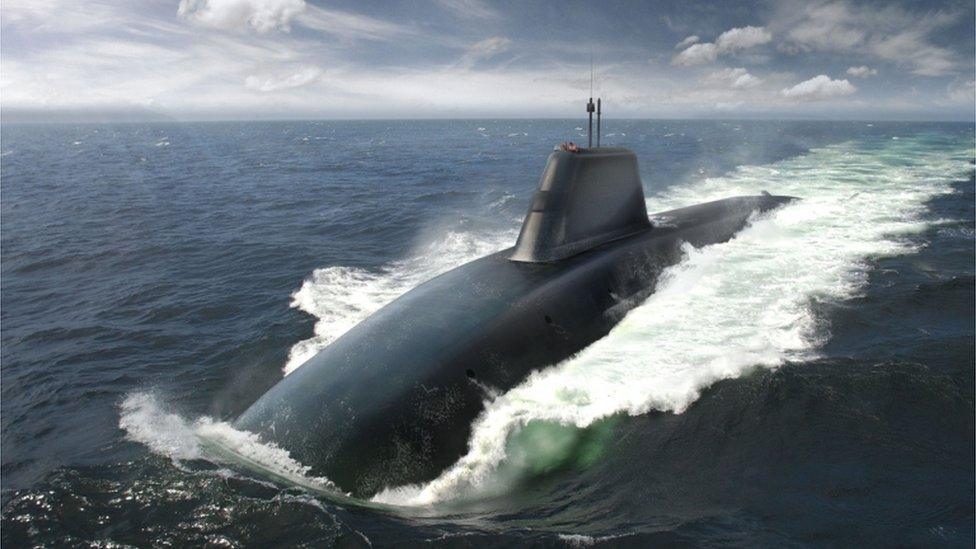Scottish Labour conference 2015: Leaders and members agree to disagree
- Published
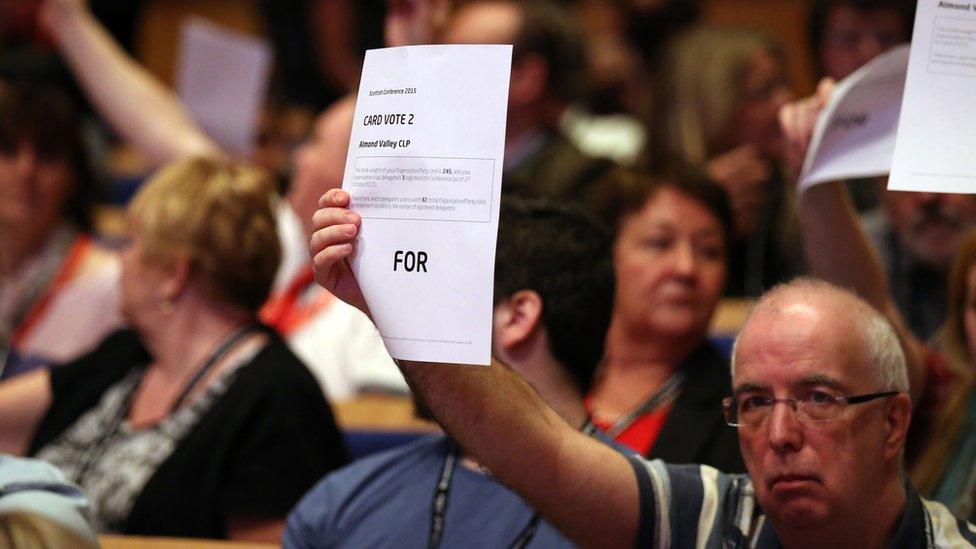
We have become so inured to political conferences being subject to wearisome control that the notion of an open debate is genuinely enlivening and startling.
Such though was the case at the Scottish Labour event in Perth - where there was not one but two debates which generated authentic disagreement. These were on Trident and TTIP, the Transatlantic Trade and Investment Partnership.
Mind you, there was a wee reminder of more familiar habits too. In the TTIP debate, the affiliates section - that is the trade unions - were recorded as voting 100% against the trade deal. Yes, all 220,030 affiliated members who had votes cast on their behalf were logged as being agin TTIP.
Still, both debates heard open argument. In the TTIP debate, one or two voices argued that the party should recognise that the trade deal might have some value - and should enable MEPs and others to argue for the exclusion of elements regarded as inimical, such as the claim that the scope of the package might include the NHS and the public sector.
Comradely fashion
Most, however, backed the contrary view - that TTIP was fundamentally threatening.
In the defence debate, the controversy was more nuanced still. All the elements of the nuclear debate were examined. Morality, efficacy, cost, employment. Anti-nuclear campaigners summoned up images of atomic holocaust. The GMB and others warned of the skilled jobs at risk.
Mostly, the debate was conducted in a notably comradely fashion. Yes, there were one or two asides where unions on either side of the debate had a wee go at each other. There was occasional resort to irony and satire.
There was elegant argument. There was simplistic invective such as the union delegate who said nuclear deterrence was needed because "Putin's a nutter".
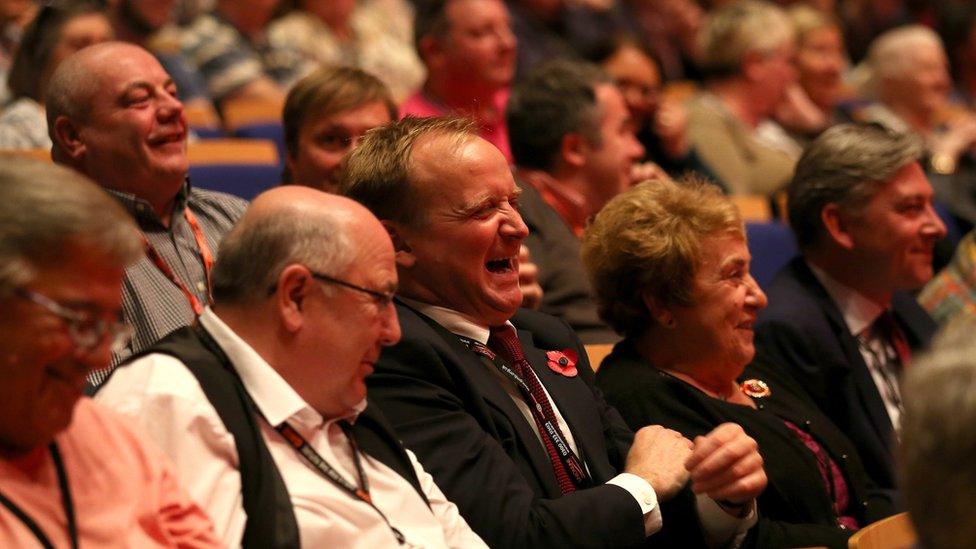
But overall it can be said that Kezia Dugdale's initiative to permit members to choose topics to debate was a success. What, though, is the effective outcome as regards nuclear weapons?
The Scottish Labour party now has a policy of opposition to Trident. The extent of the vote makes that verdict incontestable. It will permit Labour members to counter the SNP - who have a long-standing anti-Trident position.
But in practice, what next? As I noted earlier, Scottish Labour routinely opposed nuclear deterrence in conference votes throughout the 1980s and 1990s, with zero effect.
What now?
Might that change now? Not in the short term. The replacement of Trident is a Westminster decision and the Conservatives have a Westminster majority.
Beyond that? Might Labour throughout the UK now adopt an anti-nuclear stance? Certainly it has a leader in Jeremy Corbyn who favours such an approach.
Still, as one seasoned party observer noted in Perth, Scottish Labour now has a supporter of multilateral disarmament leading a party which has endorsed unilateralism. It is conceivable, said the observer, that the UK party ends up offering the mirror image.
We shall see. For now, though, let it be said that open debate has the edge over stultifying platitudes.
- Published31 October 2015
- Published30 October 2015

- Published30 October 2015
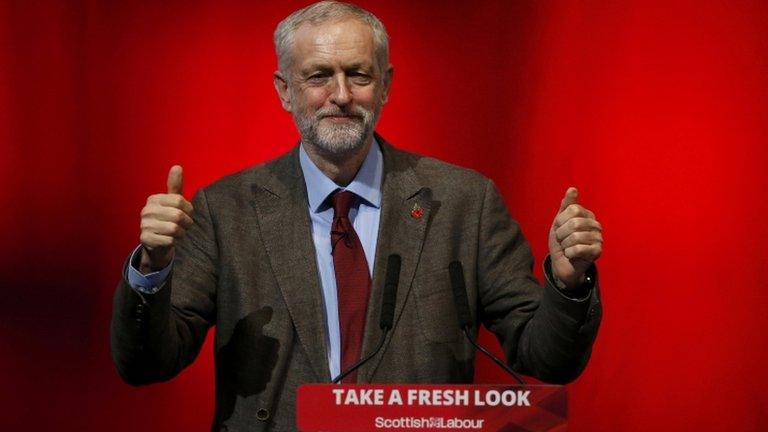
- Published30 October 2015
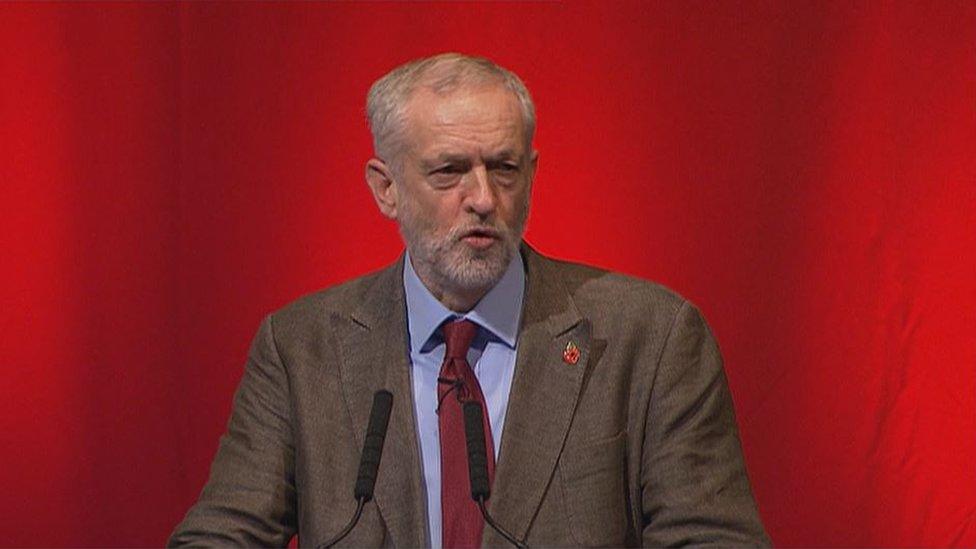
- Published30 October 2015
